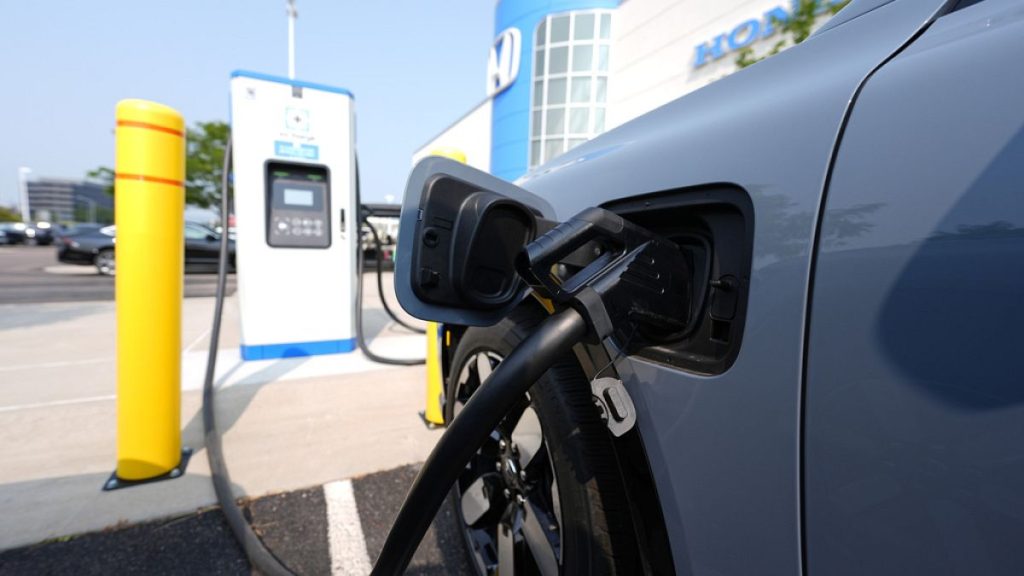In the bustling Belgian port of Zeebrugge, up to three million electric vehicles are transported yearly, highlighting the growing trend towards electric cars. The port has adapted to this shift, implementing wind turbines, on-site battery recharging options, and stringent quality control measures to deliver flawless vehicles to customers. Despite this, a surplus of electric vehicles has led to rows of idle cars gathering dust in the port’s car park. This oversupply, coupled with lower-than-average electric vehicle registrations, has resulted in a slowdown in demand for EVs. In July 2024, only 13.5% of vehicles registered were electric, compared to traditional gas-powered cars.
The evolution of Zeebrugge’s port to accommodate electric vehicles reflects a broader trend towards sustainability and green energy. The port operator has made significant investments in renewable energy, with the construction of wind turbines on the quayside to power operations. Additionally, on-site battery recharging options ensure that vehicles are ready for immediate use upon delivery to customers. These efforts underscore a commitment to environmental responsibility and the transition towards a more sustainable transportation sector.
Anne Degrauw, a vehicle processing centre manager at import-export company ICO Terminals SA, emphasized the importance of electric vehicles in shaping the future of transportation. The port’s transformation to handle electric vehicles signifies a shift towards greener, more efficient modes of transportation. Despite the current oversupply of electric vehicles at the port, industry experts remain optimistic about the long-term prospects of EVs. François Simonart, an ICO Terminals SA sales manager, noted an increase in electric car volume from China post-COVID-19, attributing it to China’s advanced technology and access to raw materials.
The slowdown in demand for electric vehicles at Zeebrugge’s port highlights challenges in the EV market, including oversupply and lower-than-expected registration rates. Despite advancements in technology and infrastructure to support electric vehicles, barriers to widespread adoption remain. The discrepancy between electric and gas-powered car registrations underscores the need for further incentives and initiatives to boost EV sales and encourage sustainable transportation practices. Industry stakeholders must address these challenges to ensure the long-term viability of the electric vehicle market.
As the automotive industry continues to transition towards electric vehicles, Zeebrugge’s port serves as a microcosm of the broader trend towards sustainable transportation. The port’s adaptation to accommodate electric vehicles reflects a growing global push towards reducing carbon emissions and promoting environmentally friendly practices. While challenges such as oversupply and low registration rates persist, industry leaders remain optimistic about the future of electric vehicles. Continued investment in infrastructure and technology, coupled with supportive government policies, will be essential in driving widespread adoption of electric cars and achieving a more sustainable transportation sector.


